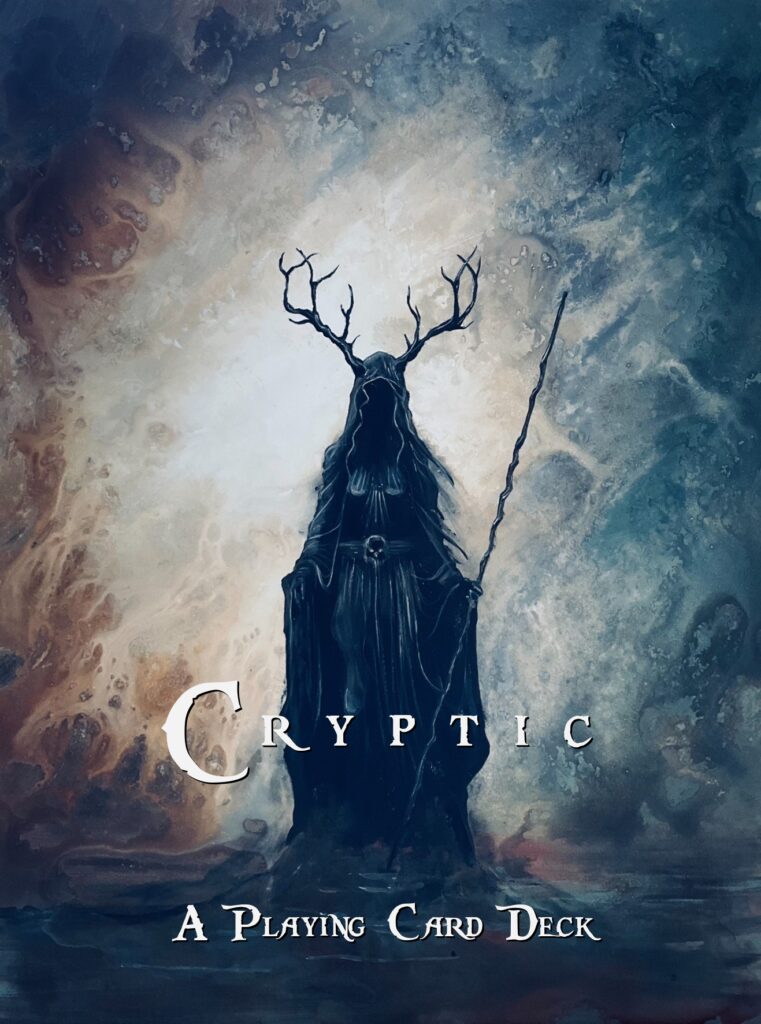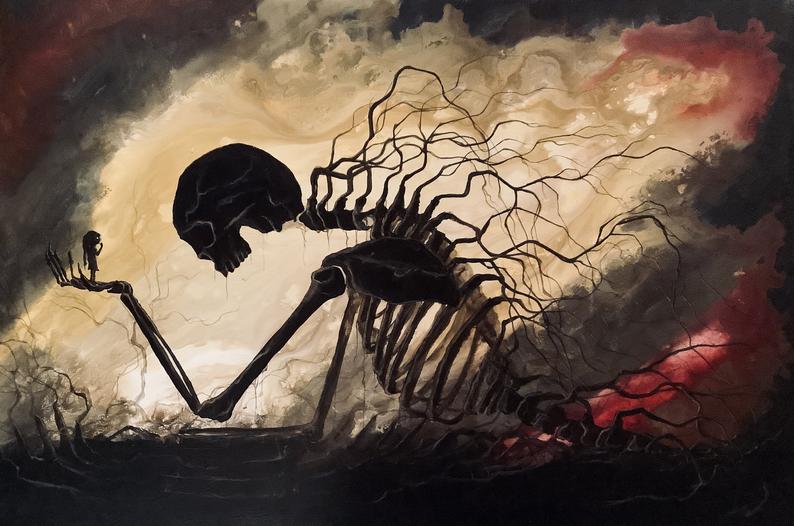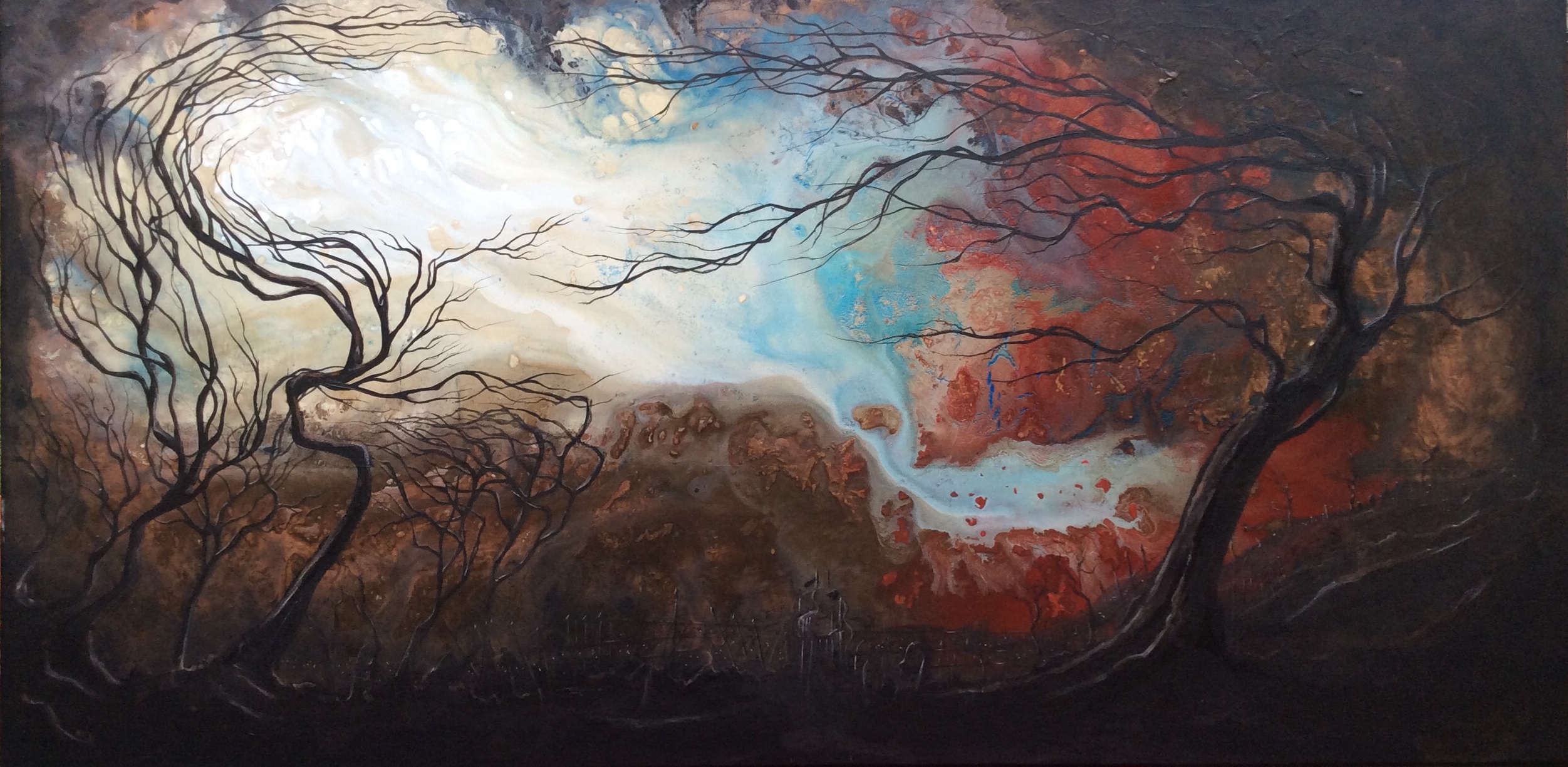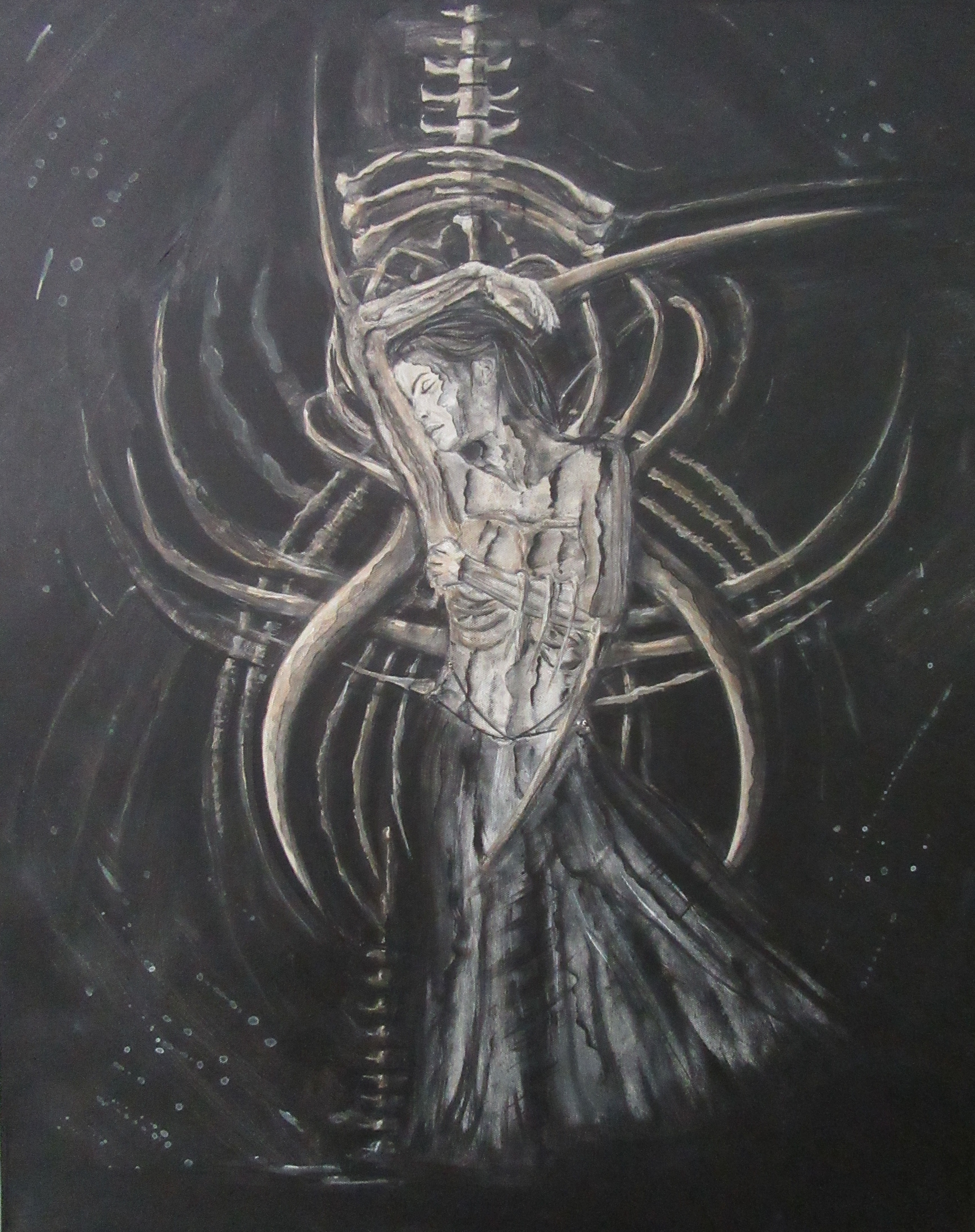Tag: death
Other Things Sweet
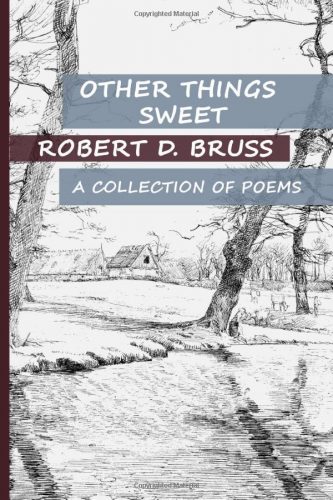
This past weekend my step-father-in-law passed away at the age of 79. I’d known Bob Bruss for just over twenty years. In that time we’d shared many conversations about marriage, life, in-laws, and a thousand other things that I’m not always sure how to quantify.
And we talked about writing.
He was always supportive of my writing, even if it was not the type of thing he was into. He wasn’t a big science fiction or fantasy type of guy. He preferred his made up stories to have some level of history to wrap themselves around. Still, he’d ask me how my current project was going, and I appreciated it.
I’m not sure when I found out he was a writer as well. Instead of prose, he focused on poetry. He would jot notes down about life, growing up, and places he’d seen. Over the years he might mention having written a new poem here or there. And at some point, either Courtney or I mentioned that he could potentially take those poems and publish them. I’m not sure if he felt like it might be too big of a task or if he wasn’t sure how to begin. A few more years went by and then Courtney gave him a gift for Christmas that said we’d help him compile everything and get it published.
Which really meant, I’d help him gather up his stuff and get him published.
We’d started the process just before Covid hit. And while 2020 wasn’t great for anyone, for Bob it was a spiral downward as his health began to really deteriate. We’d joke privately that we needed to be extra diligent as if COVID got anywhere near him we knew that would be the straw that broke the camel’s back for sure. He landed in the ICU for 14 days at one point.
Suffice to say, he wasn’t really feeling working the book. Suddenly I was worried that we might never finish it before he passed away.
And then, he rallied. As 2021 came on, he seemed to be more like his younger self. And with that came a flurry of emails with notes and thoughts about how to present the poems. He enlisted my mother-in-law, Bonnie, to help type them up, and sure enough we managed to get everything out there and publish it on Amazon.
Bonnie told me later that he was so proud once he held a physical copy in his hand. And as someone who has been lucky enough to have that moment a couple of times… I understood.
Now that he’s passed on, I found myself thinking about that process. That had we not gotten another two years he wouldn’t have been able to see his work out there. Wouldn’t be able to see others read selections. Or even have one of the poems turned into a song.
***
I figured he wouldn’t mind if I shared one of my personal favorites here. Given that I sometimes (always) have a hard time throwing things out, this one really spoke to me.
***
My Favorite Old Chair – Bob Bruss
(from Other Things Sweet – A Collection of Poems)
Once I had a favorite old chair
It’s where I would sit and never share.
It was made of green leather and had a high back
The arm rests discolored and turned shades of black.
The cushion was crushed and it sagged where I sat
It was really quite comfy; and I liked it like that.
Under the cushion, down in the cracks
It held all the crumbs I had dropped from my snacks.
I liked that old chair, it fit like a glove
The feelings I had seemed to border on love.
I’d sit there for hours while watching TV
And bask in the comfort of its arms around me.
But all good things must come to an end
The time had come to say goodbye to you my friend.
My wife was insisting, the chair had to go
I can’t face the fact, please say it’s not so.
The chair now resides at the home of a friend
I can’t face the fact that it’s come to an end.
But still on occasion I go visit there
And take a few minutes to sit in my chair.
***
If you wanted to read his work, you can find his book here.
***
John McGuire is the writer of the sci-fi novel: The Echo Effect.
He is also the creator/author of the steampunk comic The Gilded Age. If you would like to purchase a copy, go here!
Click here to join John’s mailing list and receive preview chapters of upcoming novels, behind the scenes looks at new comics, and free short stories.
His other prose appears in The Dark That Follows, Hollow Empire, Tales from Vigilante City, Beyond the Gate, and Machina Obscurum – A Collection of Small Shadows.
He can also be found at www.johnrmcguire.com
Thursday Art Assault – Never Let Her Go
Thursday Art Assault – Graveyard of the Gods
New Dark Poem – The Forever Man
The Forever Man
*
*
*
I knew a man without a name.
He walked the streets of everywhere.
At dawn, at twilight, and later
his soles unpolished pattered on roads,
in alleys,
under eaves rotten with neglect,
beyond gates silver and gold.
He knew my name
but his, I only guessed.
*
The people in whose shadow
he trailed
looked upon him in dismay,
the children with wonder,
and the world-weary with aching delight.
The lamps, whose lights fluttered in his passing
told not whether he smiled
or whether his face was many
or only one.
*
Everywhere, I saw him.
On ships, walking the prow.
In church, standing silent
as the poor bent a knee beside kings.
Strolling beside farmers’ ploughs.
Waving his pallid fingers
above cribs.
*
Everywhere, I saw him.
‘Neath his hat, beaded by rain,
stirred no worldly gaze.
His strides, measured always
to match his chosen ward.
His shoulders, heavy with a timeless suit
made of shadow,
looked the same to me
whether in sunlight
or gilded by the moon.
*
One day, I came to him.
Was it a fever I had?
Or exhaustion in my bones?
Or had I struck the first of many nails?
I could not remember.
I spoke to him,
at him
through him.
And he told me,
“Today is not your day.
“Nor tomorrow.
“Look for me no longer.
“And find me later than you expect.”
*
*
*
J Edward Neill
Find more words here.
Stan Lee
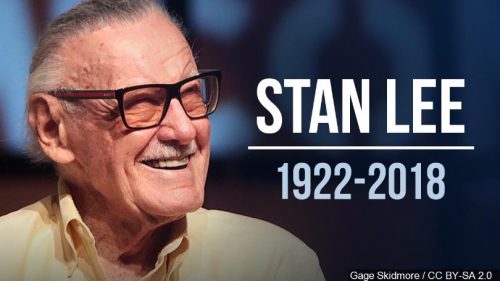
I thought I’d sit down and pour out the words about Stan Lee passing. I thought that it’d be easy to put into words what his creations have meant to me for pretty much my whole life. But it turns out that it isn’t an easy task to figure out what someone you’ve never met dying actually means to you.
There was a point in my life that I didn’t read anything other than comic books. If you’d asked I would have told you that books were boring. Not comics though and specifically the Marvel superheroes. They kept me comfort on rainy days with their adventures. They inspired me to fill a tattered blue notebook with my very first (terrible) stories about a super team called the Threats.
Back when I started collecting comics, Stan Lee wasn’t writing them anymore (aside from the Spider-Man comic strip, I believe). But there was a comic series called Marvel Saga coming out at that time. It was effectively a “history” of the early (1960s) comic stories. And I might not have known it, but Stan Lee had a hand in many of those stories during the founding of the Marvel Universe. For a ten-year-old, it was like having a crash course in comic books. Characters I was slowly becoming familiar with… now I got to read their origins. At the time, I don’t think I would have understood that they had a nearly 25-year lifespan already.
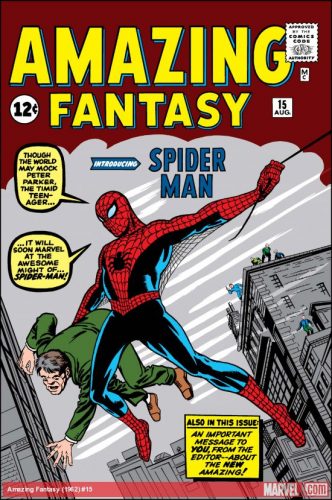
The fun was built in. Lots of articles will talk about how he made characters who had problems just like the readers had. Or that he gave them flaws. Made them more human. And he did do that. But for me, he’d created fun characters I enjoyed reading.
This hobby has gone from niche to people buying 10 copies of an issue #1 in hopes of funding their retirement to bankruptcy and now movies. What’s even more amazing is that I’ve been collecting long enough where the rest of the world has only now caught up to what us funny-book readers always knew: this stuff was never just for kids. It was always for everyone.
It is possible I could have discovered comic books without Stan Lee’s creations. I wonder if my love for the format would have been possible without his influence. Would the medium be something that I have not only dedicated 30 plus years to supporting, but also in creating my own comic books… my own characters.
I’m glad I don’t have to figure that out.
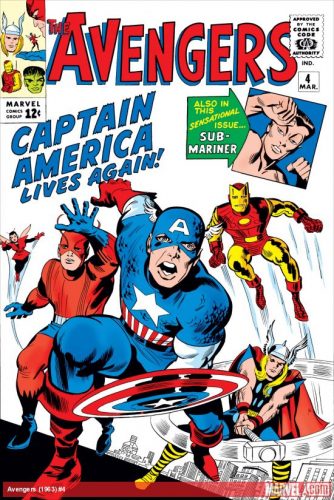
Throughout our lives, there are people who have influence over us that we will never meet in real life. Those people can create things which leave the world in a far better place than it was prior to their existence. Those items floating out there waiting for you to stumble upon them somehow. And others are touched by these things leading them to create and those things only add to a person’s legacy. Like a family tree which grows stronger and stronger with each passing year. It stretches out and up to inspire others.
Stan Lee was one of those people for me. And now he’s gone. But I can’t feel empty because he’s filled my mind and heart with so many stories and ideas.
Thank you, Stan… for everything.
***
John McGuire is the creator/author of the steampunk comic The Gilded Age. The Trade paperback collecting the first 4 issues is finally back from the printers! If you would like to purchase a copy, go here!
Want to read the first issue for free? Click here! Already read it and eager for more?
Click here to join John’s mailing list.
His other prose appears in The Dark That Follows, Hollow Empire, Beyond the Gate, and Machina Obscurum – A Collection of Small Shadows.
He can also be found at www.johnrmcguire.com
Thursday Art Assault – Necromancia
No One Is Safe
If a show sets up an expectation that anyone can die and then showcases a handful of characters… is it really being true to its core premise? To put it another way, at what point does your desire to see further main characters killed off interfere with story and enjoyment? When does worry as a viewer disappear? When is it replaced with apathy at what may come?
“I just don’t feel like any of the main characters are in real danger.”
Both a solid argument and a bit of strangeness all rolled into one. For we all have watched the serialized shows for the past twenty some odd years. And with their coming it means we are watching lives twist and change through each zombie apocalypse, vampire slayer, gangster talking to a shrink, plane crash survivors, high school teacher turned criminal mastermind… all of it. Through it all, whether we knew it or not, we were watching a show not only likely to get some characters killed off, but they might very well be people we enjoyed watching. It put us at the edge of our seats week in and week out.
Does that change as the shows go on longer? Assuming the writing quality doesn’t suffer from the weight of its own success, is the idea “Anyone can die” enough of an idea to ensure the ratings don’t suffer.
And if it does, what can the writers do to bring that… fear back to the viewing experience?
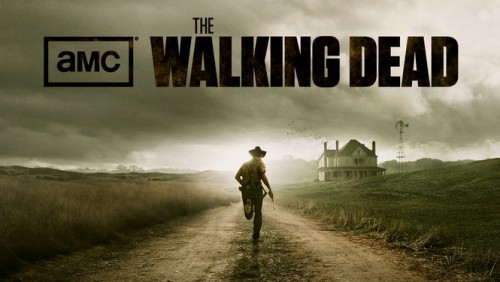
I read comics, a format where if you read the adventures of Batman or Spider-man then the one truth is pretty much universal – the hero isn’t going to die at the end of the issue (and for this argument I’d like to say that yes, some of these characters have “died” and they have come back – but you have decades worth of stories where they just go on and on). My point is that I don’t need the fear of death for my characters to enjoy a comic book. I just need the story to be compelling in some fashion or another.
I would think that in order to have a serialized show there has to be a consistent POV. And while many serialized shows have contained multiple POVs, I still must care somewhat about the characters. So a lot of times the whole idea of “No one is safe” is very artificial. Buffy killed off a potential main cast member in its pilot episode. Angel did the same about half-way through its first season. Lost killed off some characters you loved and let others you hated stick around for longer than they should have.
Odds were high, though, that Jack and Buffy and Angel and Walter were going to keep going for the majority of the show. And I would assume anyone who loved those shows wouldn’t want those particular characters to die without some huge (HUGE) reason behind it from a story perspective.
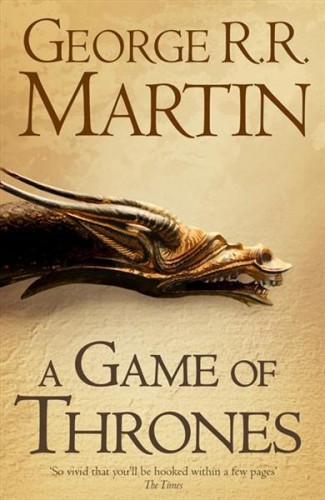
The two shows currently airing which try to walk this line (as far as the idea “anyone can die”… well almost anyone… well maybe just the supporting characters… and Sean Bean…”): Game of Thrones and The Walking Dead.
From what I’ve seen and read from both series (being a fan of the books and comics), I have to believe each contains a handful of “untouchables”… at least until the final season of each. There are certain characters I expect will continue to breathe life in their respective universes. GoT – Arya, Danny, and Tyrion seem the most likely. WD – Rick and Carl… with Carl actually being the absolute last survivor from our original group (my personal theory on how that story could/should possibly end).
The Walking Dead probably has the greater burden of the two, being in the post-apocalyptic world where, if we’re being honest about it, people are just fodder. A place where every day could and probably should be your last. Over the seasons they introduce new characters and kill off preexisting ones, but there has slowly become a “core” group who have managed to stick around from season 1 through the end of this last season. Is it a bad thing this has happened? Remember, we’re not watching an anthology where the characters only are on set for the episode or two. We need to build a connection with them (thus connecting us to the show itself).
Game of Thrones goes through episodes where no one dies, and then all of a sudden, everyone is gone. It also has the benefit of being much closer to a planned ending (only 13 episodes left total between this season and last). Things are coming to a head, which means those characters we’ve grown accustomed to watching may slowly drop away without us realizing it’s about to even happen.

So is unpredictability a good thing or the only thing?
I’m not sure if past a certain point it matters all that much. Most of the time, I’m willing to forgive a show some smaller things if they’ve delivered on their promises in the past.
So obviously I think everyone can die at any instance? No. Honestly, I assume most main characters are going to make it a little while longer. I don’t expect to Sansa die anytime soon… I don’t expect Michonne to kick the bucket this coming season. And that’s the thing… I don’t need to fear for their lives… not when I can still fear for their souls.
***
John McGuire is the author of the supernatural thriller The Dark That Follows, the steampunk comic The Gilded Age, and the novellas Theft & Therapy and There’s Something About Mac through the Amazon Kindle Worlds program.
His second novel, Hollow Empire, is now complete. The first episode is now FREE!
He also has a short story in the Beyond the Gate anthology, which is free on most platforms!
And has two shorts in the Machina Obscurum – A Collection of Small Shadows anthology! Check it out!
He can also be found at www.johnrmcguire.com.
Death and Cranberry Sauce
It’s Thanksgiving week. For some of us that means roasted fauna, houses packed with kids, and huge dinners with family. For others it’s a chance to raid retail America at 4AM to wage jihad against our rival shoppers. And perhaps, for a few, it’s a chance to reflect upon our good fortunes and spend a few hours or days among those we cherish most.
Let me level with you. For me, it’s mostly a chance to write even later into the night than usual.
As I sit here in the dark, my laptop humming away, I try to think of appropriate topics to fill the holiday void. Maybe, I think, I’ll write a nice piece about turkeys. Nah. Too ridiculous. Everyone already knows how amazing turkeys taste. Well…what about a nice anecdotal essay of all the glorious Thanksgiving feasts I’ve devoured? Nope. Too hunger-inducing. Ok. Maybe a nutty short story about zombie pilgrims, seven-barreled blunderbusses, and cranberry sauce gone evil? Meh. Maybe next year.
As it turns out, aside from Halloween, the holidays just aren’t that inspiring word-wise to me. With all the reindeer, jingling bells, and Stove Top stuffing, everything merry is pretty much covered. Seems I’d rather write about castles crumbling, warlocks trying to end the world, and maidens not-so-fair. Yep. Fantasy tropes galore. Santa was never very good at swordplay anyhow.
And so, lacking anything holiday-appropriate, I’ve decided to tackle a much darker subject this week. Death. Yes, death. Specifically the killing off of fictional characters. More specifically the way I like to do it when I write.
Why, you ask? “It’s the holidays, J Edward. You’re supposed to be cheerful.” Well…perhaps it’s the weather (grey and sunless) or maybe it’s the chill in the air. Or more likely it’s because I’m neck deep in putting the finishing touches on Dark Moon Daughter and completing the final episode of Hollow Empire. A glimpse at the names of these two titles should be enough to let you know. These are dark fantasy works. And that means lots of characters need killing.
I suppose some writers agonize over ending the careers of their favorite characters. After all, these fictional folks become a part of us. We are them, and they are us. The longer we spend with them, the more we come to know and love them. The same goes for readers of fiction. I’ve been there. I know. When Gandalf the Grey plummeted off the bridge with the Balrog, I suffered some heart stoppage. When Javert threw himself in the river in Les Miserables, I felt all, “WTF?” Heck, when Sauron got spanked in Return of the King, I was a little sniffly.
Writing a character’s death, however…that’s a whole other matter for me. I crave it. I love it. Having marched so many miles in their mud-encrusted boots, having survived with them through war and darkness, I’ve lived inside them and experienced things I never could in my ordinary life. But when the curtain falls and the lights go out, it’s time for them to meet their makers. Not all of them, mind you. Just enough to keep the reader wondering.
Ending a character’s life, no matter how beloved, has become a way for me to move on to the next hero, the next villain, the next part of the writing experience. When most readers close a book they’re reading, the characters live on in their hearts. It’s the same for me. But when I slam shut the cover of my own works, I want to remember the way my characters left the world. I like a story finished, all the loose ends tied up, all doubts ended. And for some characters, that means a sharp shovel and some cold earth. Those of you who’ve read Down the Dark Path might snicker at that last part and say, “I call BS, J Eds. There’s this part at the end in which...” Yeah, I know. To you I say, “Just wait for Nether Kingdom.”
So let’s talk about technique. How’s it done? How do you reach out and snatch the reader’s heart out of their chest? How do you become a killer? For starters, let’s talk about how not to do it. In a popular novel I recently finished (not to be named for fear of retribution) two clutch characters are murdered in the same chapter. One, fittingly so, gets a few final words, a vivid description of his end, and even a zinger of a quip mocking the man and his life. The other…well… she gets none of these. In fact, we’re not even sure she’s dead. We’re left wondering, not for mystery’s sake, but solely due to poor description, whether this woman has been murdered or not. The result is that I cared about the one death, but felt totally ambiguous about the other. Not good. Made me mad. You cheated me, Mr. Author. You promised two, but only gave me one.
How then do you do it? I won’t claim to be the expert on character death. Far from it. But I’ve some practice in the realm, and here’s my process. Foremost, unless the plan is to resurrect ’em or purposefully trick the reader into thinking their favorite huggy little elf or blundering hero has died when they haven’t, then make sure you kill ’em dead. The first time. Leave no questions. Let the Grim Reaper walk right up and snatch the character’s soul away with his cold, bony claws. Be absolute. Second, and here’s the key, make it vivid. I’m not talking about fountains of blood (although sometimes…) or pages upon pages of last words and, “…tell my wife I love her.” I mean give us the skinny. Was the character sick before he died? Well…tell us about his shivers, his eyes gone cold, his wide-eyed stare at the heavens once he’s gone. Did the princess burn alive in her ivory tower? Ok…give us her pain, her dress turning to ash, her arms curling across her chest. What about battle? Did Ser Bigsword meet Lord Darknuts and bite off more than he could chew? Good. I want to read about the bad guy carving his armor to ribbons. I want to know his terror. Admit it; so do you.
Because ultimately, that’s why you’re so invested in the characters’ lives. Because maybe, just maybe, your favorite knight, scullery maid, or kindly, soft-spoken wizard could suddenly meet their end. And if the author insists on doing that to you, you’ve every right to insist he does it right. I’ll do it for you. That’s a promise.
So…Happy Thanksgiving. Enjoy your feasts, your shopping, and your families. I’ll still be here in my dungeon, awaiting your return. If you’ve a favorite character in Down the Dark Path, I’d worry for their health…






